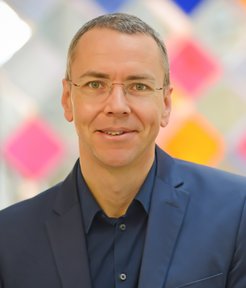European Commission Funds the Next-Generation Platform for Quantum Simulation with Cold Atoms (PASQuanS Project)
In the context of the project, the Max Planck Institute of Quantum Optics together with research partners from academia and industry plan to develop next-generation quantum simulation platforms. These new systems will advance the state-of-the-art in quantum simulation and will provide modular building blocks for a future generation of quantum simulators.

The project builds on the impressive achievements of the most advanced current quantum simulation platforms, which are based on ultracold atoms and ions. Neutral-atom simulators can already handle more than 100 cold atoms in optical lattices or arrays of optical tweezers, interacting via either collisional or Rydberg-state-mediated interactions. The ion-trap platform reaches unsurpassed control with up to 20 ions.
The PASQuanS project aims to scale up these already well-advanced platforms to more than 1000 atoms or ions, to improve the control methods and to make the simulators fully programmable. Full programmability will make it possible to address quantum annealing or optimization problems that are hard to solve on conventional computers. Another important goal will be to demonstrate a quantum advantage for non-trivial problems, paving the way towards practical and industrial applications.
The project consortium brings together five experimental groups with complementary expertise to achieve the technological goals, complemented by six theoretical teams that will focus on certification, control techniques and applications of the programmable platforms, and five industrial partners charged with the key tasks of developing enabling technologies and possible commercial spin-offs of the project. Major industrial firms, which are major potential end-users of these simulators, are closely associated with the consortium and will help in identifying and implementing key applications in which quantum simulation provides a competitive advantage.
The Quantum Flagship was launched in 2018 as one of the largest and most ambitious research initiatives of the European Union. With a budget of one billion euros and a duration of 10 years, the Flagship initiative brings together research institutions, academia, industry, enterprises, and policy makers, in a joint and collaborative initiative on an unprecedented scale. The main objective of the Flagship is to consolidate and expand European scientific leadership and excellence in this research area, as well as to transfer quantum physics research from the lab to the market by means of commercial applications and disruptive technologies. With over 5000 researchers from academia and industry involved in this initiative throughout its lifetime, it aims to create the next generation of disruptive technologies that will impact Europe’s society, placing the region as a worldwide knowledge-based industry and technological leader in this field. For more information please visit https://qt.eu/












